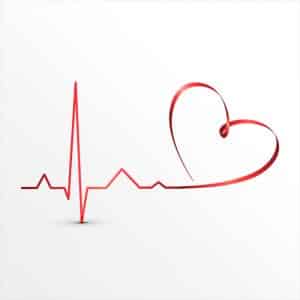Our heart is the strongest muscle in our body, and if it fails to work properly, it can trigger some symptoms related to other body parts, such as our limbs, head, and throat. Heart attack, or myocardial infarction, is the number one killer of both men and women in the U.S. each year. Knowing the warning signs is critical for prompt recognition and treatment. There are several symptoms of an unhealthy heart of which you need to be aware.
Chest Discomfort
Firstly, the most common sign is chest discomfort. If you have a blocked artery, which can lead to a heart attack, you can feel tightness, pressure, or even pain in your chest that can last for a few minutes.
Nausea/Indigestion/Heartburn
Somewhat common symptoms for women during a heart attack are nausea, indigestion, and heartburn. Although some people may attribute this to other reasons such as food, you need to be aware that these symptoms could happen during a heart attack.
Pain that spreads to the arm
When most people think about symptoms of a heart attack, they identify with a shooting pain that almost always starts in the chest that radiates down the left side of the body.
Feeling dizzy or lightheaded
Feeling dizzy or lightheaded can be a cause for concern. It could mean that your blood pressure has dropped due to your heart not pumping properly.
Throat/jaw pain
Surprisingly, throat or jaw pain could be a symptom of a heart attack, especially if the pain started in your chest and spreads to your throat or jaw.
Getting easily exhausted
Extreme exhaustion or unexplained weakness can be a symptom of a heart attack, especially for women.
Snoring
One surprising symptom that most people do not contribute to a heart attack is snoring.
Although slightly snoring while sleeping is normal, unusually loud snoring that sounds like gasping can be a sign of sleep apnea. This puts stress on your heart.
Irregular heartbeat
Although it is common for your heart to race once in a while due to exercise or excitement, this could be a signal of atrial fibrillation, which is a condition that causes your heart to feel like it’s beating out of time for more than a few seconds.
Even though the symptoms of a heart attack can sometimes be mild, it is important to remember that heart attacks that produce even mild symptoms can be just as serious as heart attacks that cause severe chest pain. Early diagnosis and treatment saves lives. One cannot overemphasize the importance of seeking prompt medical attention when experiencing the symptoms of a heart attack.



